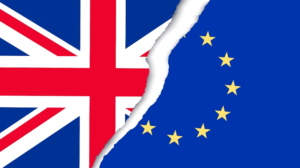Over the last few months we have witnessed history, with the majority vote in favour of Britain leaving the European Union (EU). This was a surprise to many, and sent shockwaves around the world. In the days following the vote, the value of the pound declined substantially, and this instability may continue into the future as long as uncertainty is prevalent.
Some of the key drivers behind the vote to exit the EU include a general view held that the EU is holding Britain back. The EU is said to be imposing too many rules on business and charging billions of pounds each year in membership fees for little in return (per the Treasury figures, in 2014/2015 Britain’s net contribution was £8.8 billion). Many people are also concerned with immigration levels and want Britain to take back full control of its borders, reducing the number of people moving there to live and/or work.
Under the current EU framework, it is relatively easy for businesses to move resources such as people and products to and from British and European countries. However, businesses that trade in Europe and Britain are finding it difficult to predict how Britain’s exit from the EU will impact their business going forward. Although it is difficult to predict what will transpire over the next few years, by understanding the process and expected events behind the exit, you can get an idea of the potential outcomes an exit may cause.
In order for Britain to formally exit the EU, Article 50 of the Lisbon Treaty must be invoked. As Article 50 is relatively new and has never been invoked before, both the timing around the exit and application of the Article are uncertain. The process of Britain exiting the EU is expected to take some time and until Britain ceases to be a member, the EU laws still stand. From a legal and regulatory standpoint, nothing should change for approximately two years. This window, as prescribed by the article, provides for a renegotiation period allowing for a new legal foundation to be built for Britain’s trade relationship with the EU. During this period a number of other factors could also impact the outcome of the exit where key events will take place, such as the French Presidential election and German Federal election.
The exit implications for businesses will largely depend on the arrangement Britain enters into with the EU following the exit (Britain will likely enter into one single deal with the remaining 27 EU members). Four scenarios could occur in relation to the different degrees of integration that Britain may have with the EU in the future. These scenarios could take different specific forms, but broadly reflect one of the following:
- EEA Member – where Britain remains part of the EEA and keeps the four freedoms of labour, capital, goods and services.
- Free trade agreement.
- Bilateral agreement (Swiss option).
- No access agreement, whereby no new trade agreements are established with the EU.
Any businesses trading across the British border will be anxiously waiting to see what happens next. They are likely to be thinking ahead and identifying potential issues and opportunities that may arise following an exit, such as the structure for exporting and importing goods, potential regulation changes, customs procedures and passport controls for business travellers. It could even see NZ businesses being put on a par with UK businesses when trading with counter parties within the EU.

